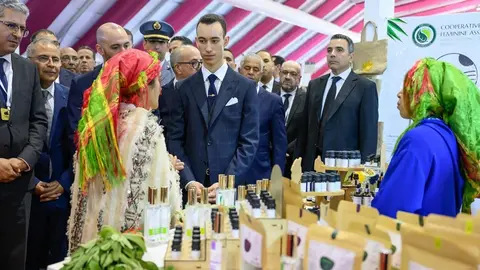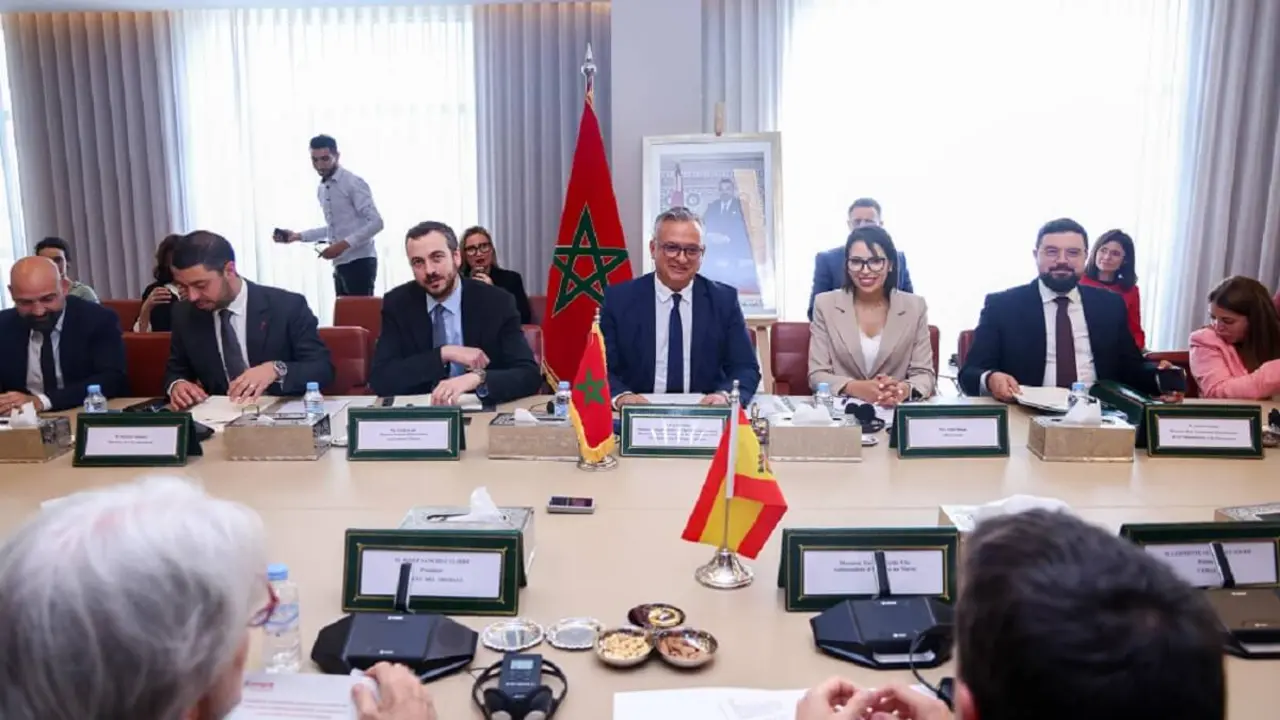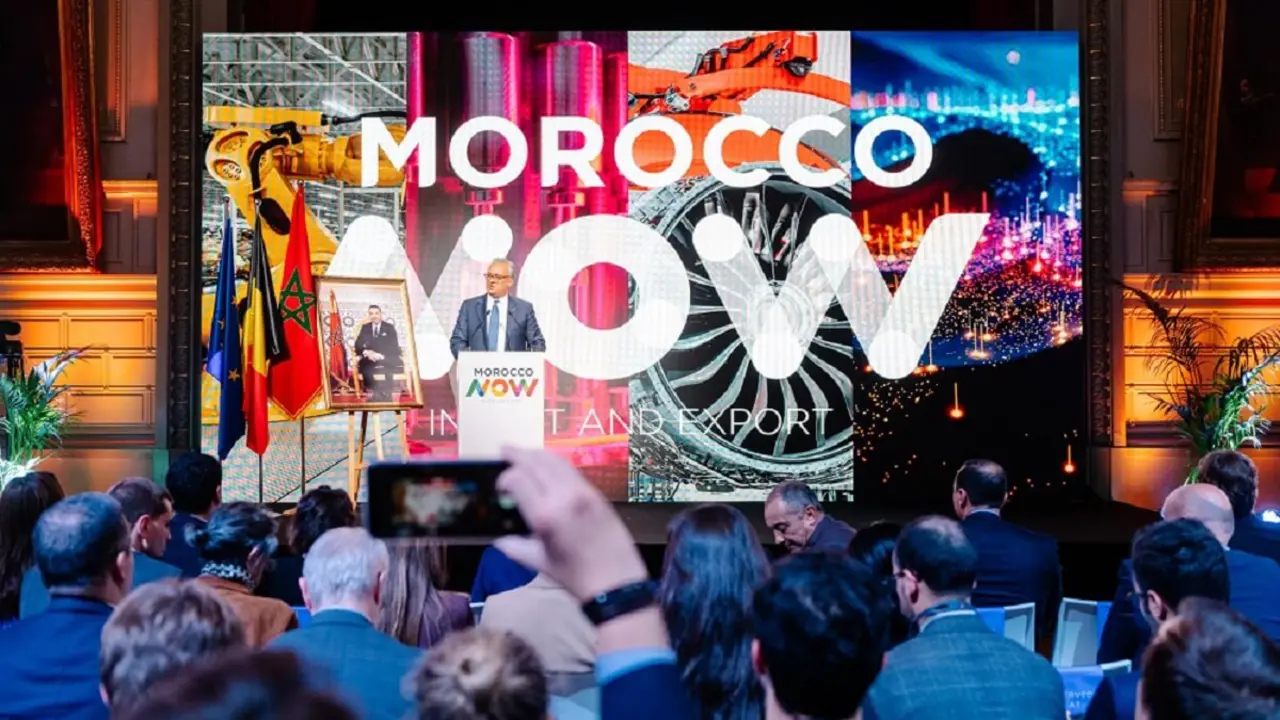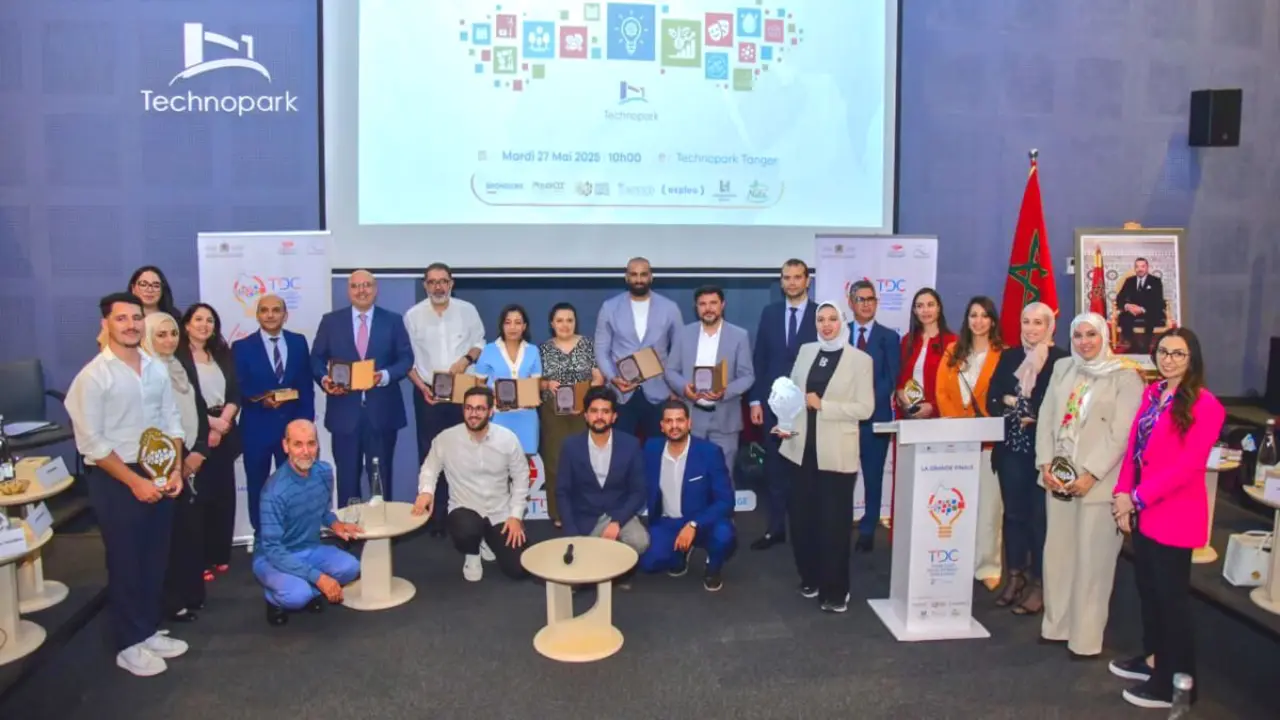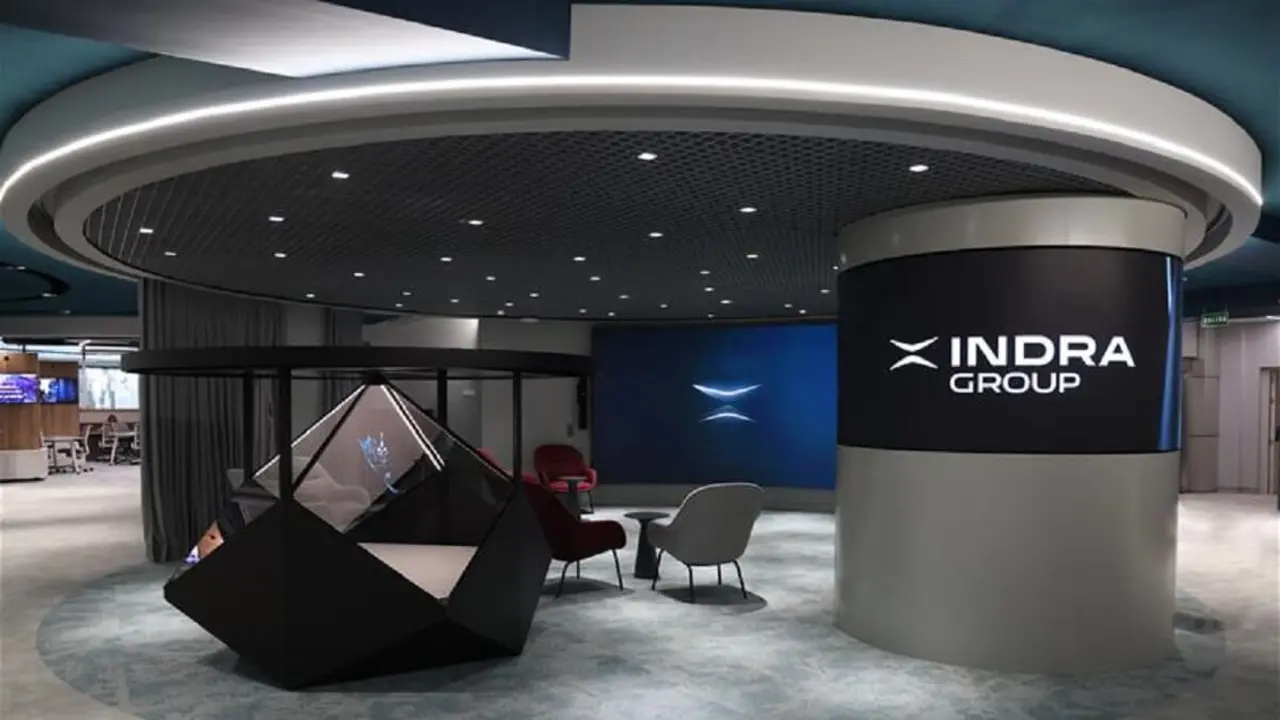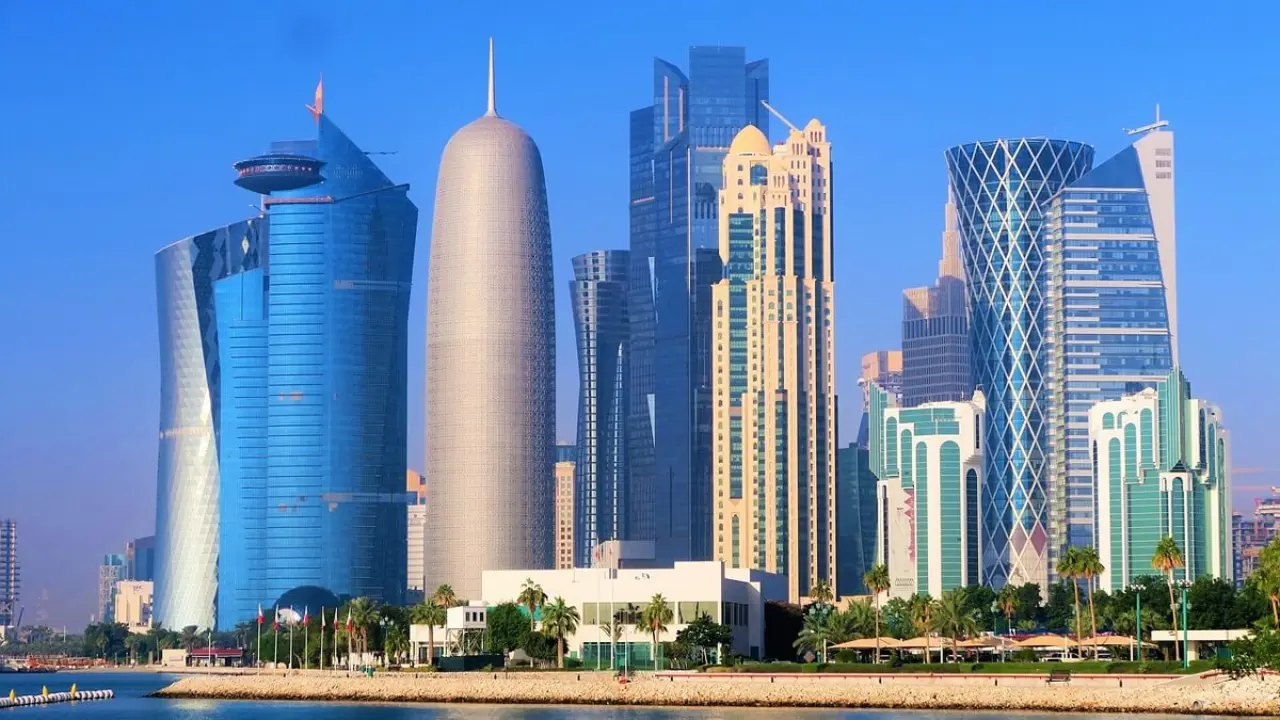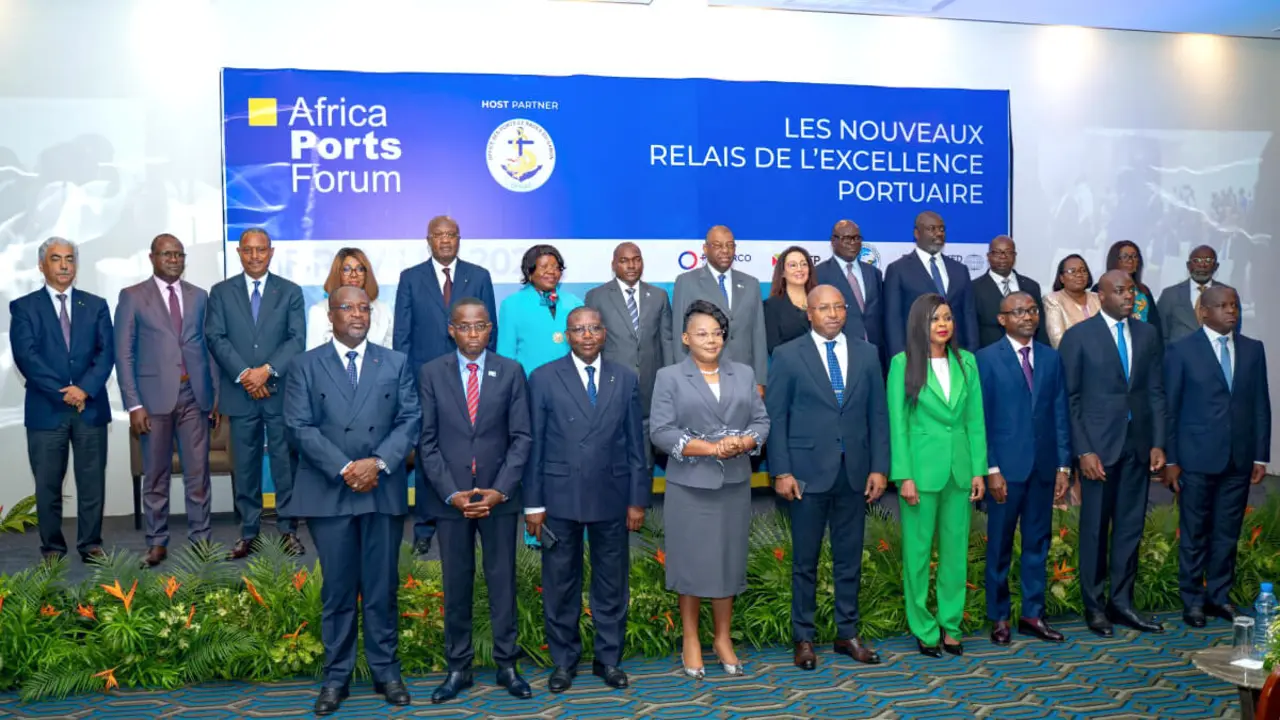Morocco outlines its priorities for water and agriculture at its International Agricultural Show
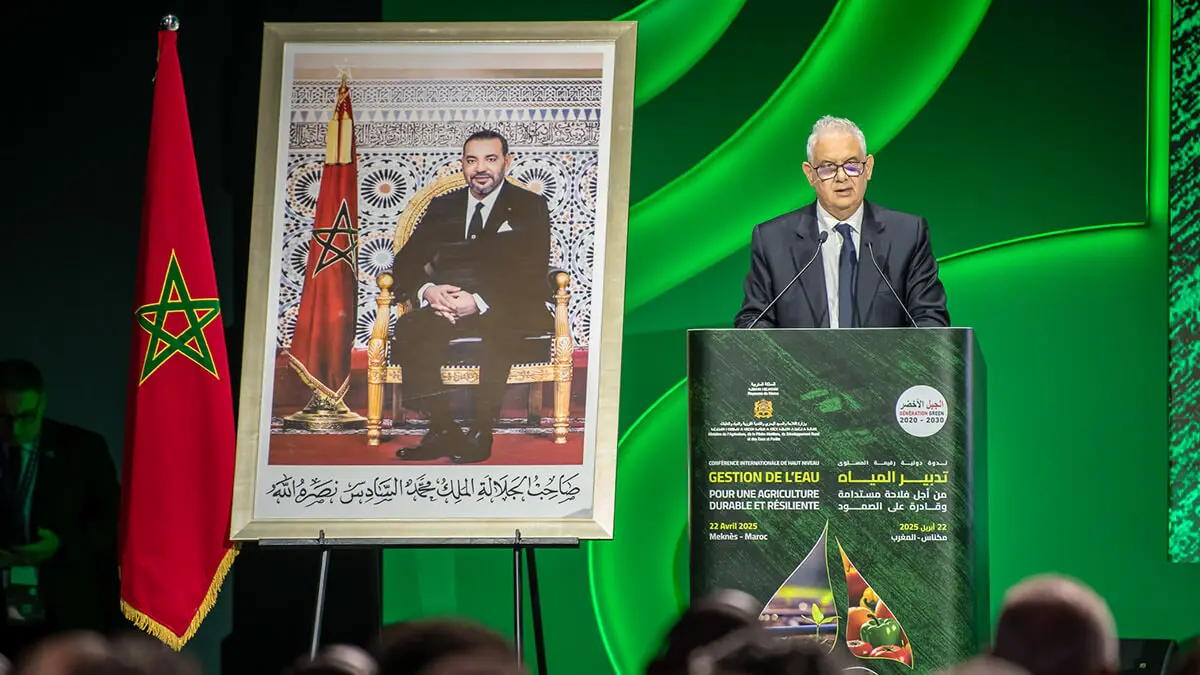
- Agriculture
- More than 1 billion cubic metres of desalinated water by 2030
- Signing of two strategic agreements
Following the inauguration of the International Agricultural Show of Morocco (SIAM) by Crown Prince Mulay El Hassan, it was the turn of the ministers responsible for agriculture and equipment and water to address the audience.
Ahmed el Bouari, Minister of Agriculture, Maritime Fisheries, Rural Development and Water Resources, and Nizar Baraka, Minister of Equipment and Water, outlined the country's priorities in terms of water and agricultural resource management and signed two strategic agreements for better convergence between the two ministries.
Agriculture
In his opening speech at the International Agricultural Show of Morocco, the Minister of Agriculture, Maritime Fisheries, Rural Development and Water Resources, Ahmed el Bouari, emphasised the importance of the annual SIAM event, which brings together experts, senior officials and researchers seeking innovative solutions to the challenges of water stress caused by seven consecutive years of drought.
‘Thanks to the proactive measures taken by the Ministry, in accordance with royal guidelines, we have been able to maintain agricultural activities and supply the domestic market with food throughout these seasons,’ El Bouari explained, adding that: ‘we are continuing to implement the Green Generation 2020-2030 strategy, starting with a review of the past five years in order to adapt to the new challenges of the future.’
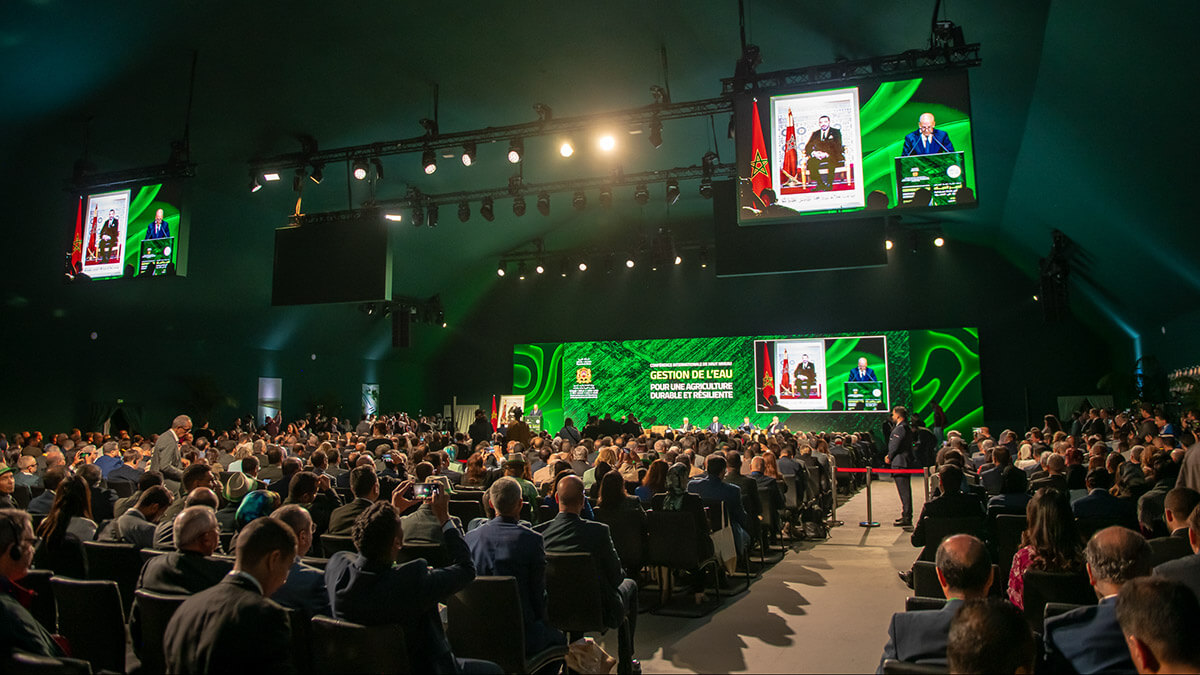
The minister said that ‘this year's agricultural season is considered promising thanks to the rains we have had in March and April, which have contributed significantly to improving the Kingdom's water resources.’
According to statistics from the Ministry of Agriculture, cereal production will reach 44 million quintals this year, an increase of 41% compared to last year. A considerable improvement in agricultural productivity growth is also expected, reaching 5.1%, compared to -4.8% in 2024.
In the context of improving irrigation efficiency and consolidating Morocco's capacity to face climate challenges, El Bouari recalled the plans and programmes launched by the Ministry to improve livestock farming and support livestock farmers, without losing sight of the primary objective of meeting 80% of agricultural water needs by 2030.
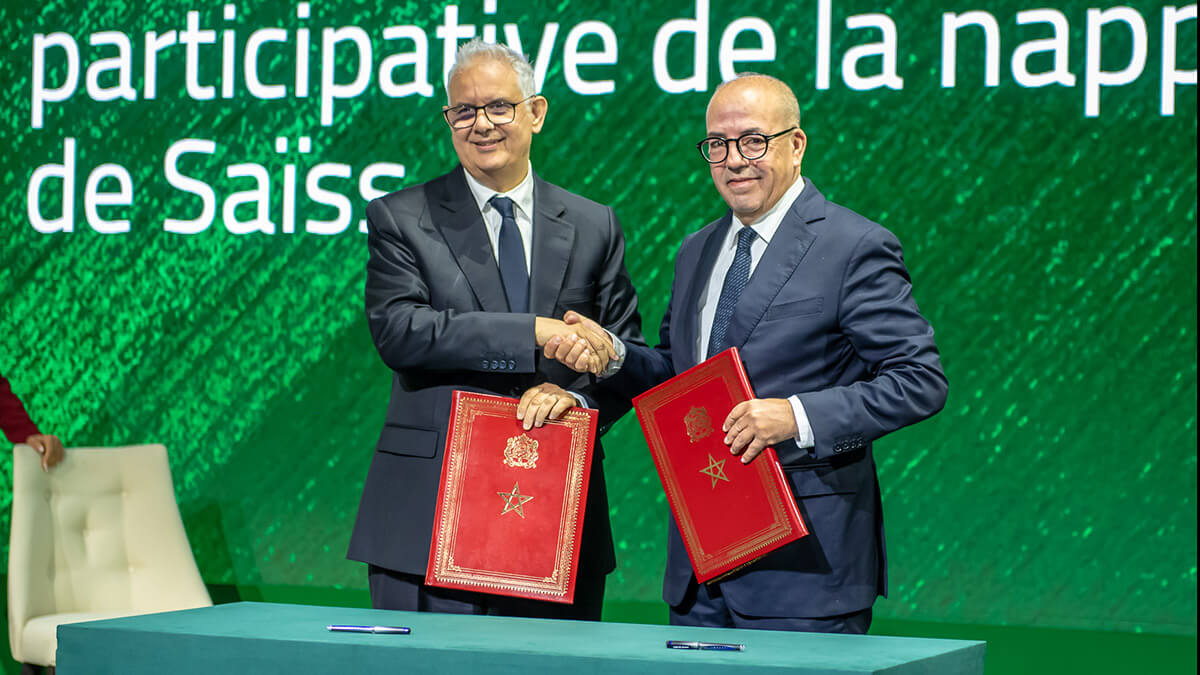
Ahmed El Bouari highlighted Morocco's main priorities in terms of water and agriculture, which are:
- Seeking and activating convergence between the water and agriculture sectors in implementation of the Green Strategy 2020-2030 and the National Irrigation Programme 2020-2027.
- Increasing water supply through the maintenance, construction and planning of dams.
- Building seawater desalination plants.
- Using renewable energies in the production of desalinated water.
- Rationalising and ratifying the use of agricultural water and the management of this resource.
- Increasing and improving the use of wastewater.
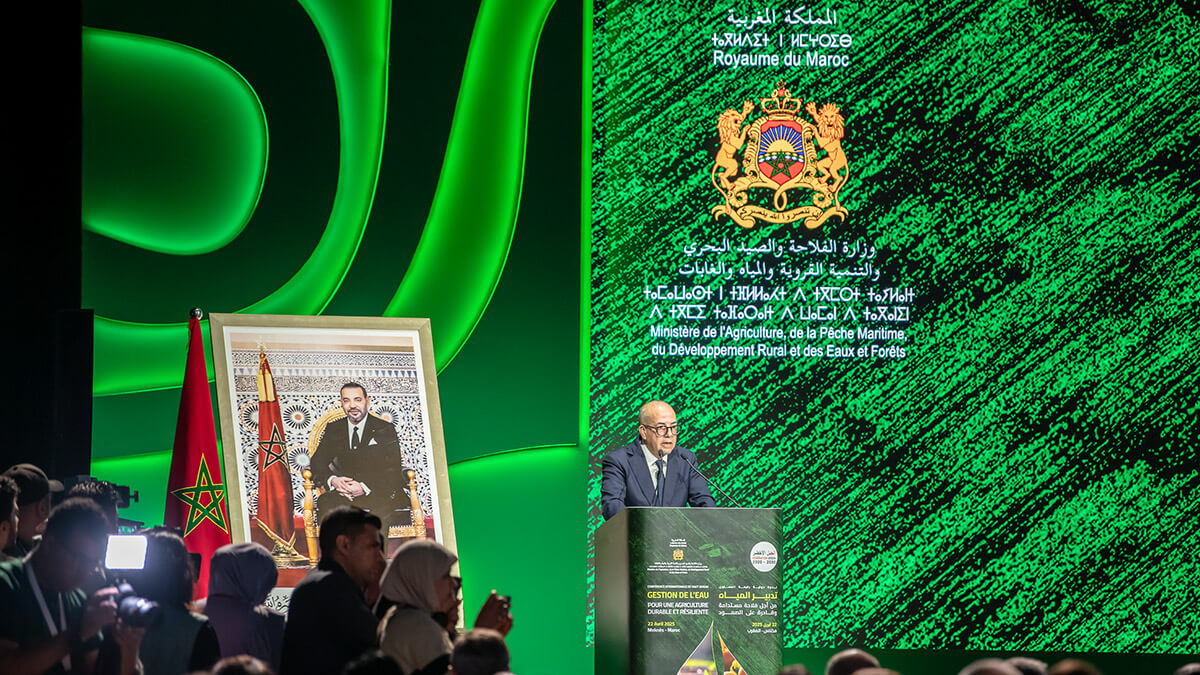
More than 1 billion cubic metres of desalinated water by 2030
For his part, the Minister of Equipment and Water of the Kingdom of Morocco, Nizar Baraka, recalled Morocco's water policy, inspired by the vision of King Mohammed VI, which aims to address economic, social and environmental challenges and insists on the constant updating of the water situation in the country, including in urban and rural areas.
Baraka explained how Morocco had adopted a proactive approach, taking into account the obstacles posed by climate change, exacerbated by successive years of drought. Thanks to the royal commitment to supply 100% of drinking water and at least 80% of agricultural water by 2030, the water policy is based on the following levers:

- Increasing traditional water resources, which include 154 medium and large dams, 16 dams under construction and three planned dams that will become operational in 2030.
- Ensuring the sustainable management of dams.
- Accelerate the construction of water desalination plants as unconventional resources (Dajla, Casablanca, Nador, Tiznit).
- Produce more than 1.7 billion cubic metres of desalinated water by 2030, with 500 million dedicated entirely to irrigation.
- Strengthen solidarity between different traditional and unconventional water resources, as well as between the country's coastal and inland areas.
- Reuse wastewater for irrigation of green areas.
- Raise awareness and sensitise citizens in collaboration with actors from the industrial, agricultural and social sectors.
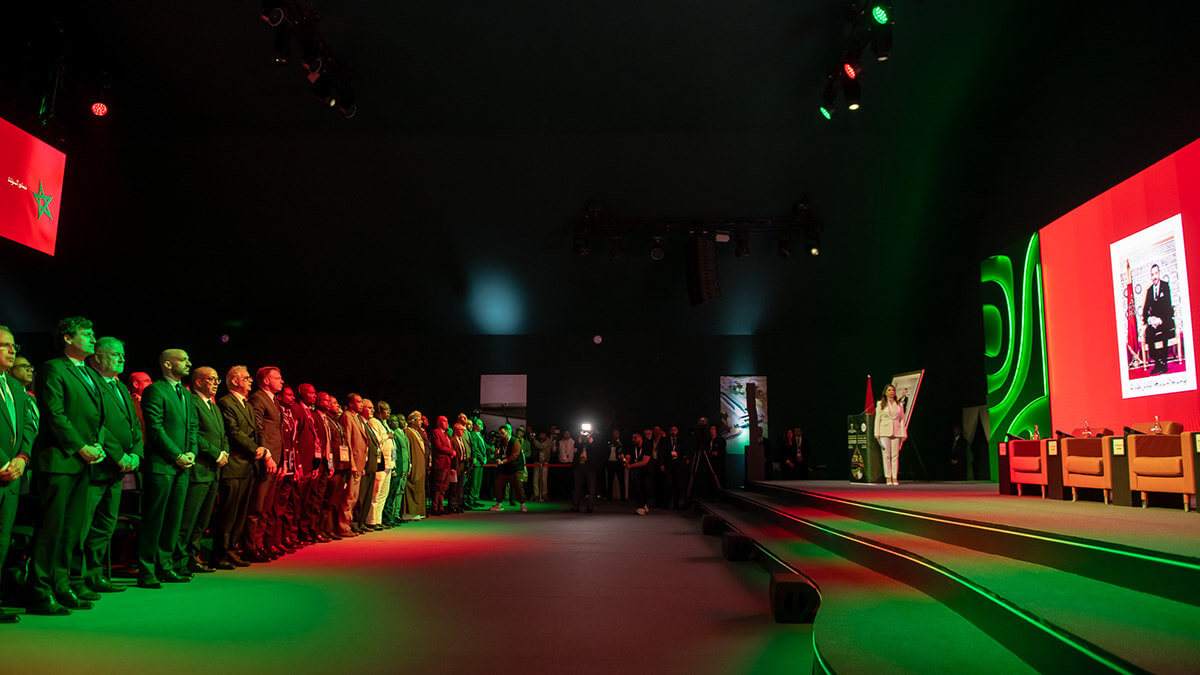
Signing of two strategic agreements
During the opening session of the 17th edition of SIAM, on 22 April, two agreements were signed in Meknes between the Ministry of Equipment and Water and the Ministry of Agriculture, Maritime Fisheries, Rural Development and Water Resources, within the framework of improving the convergence of water resource management policies at the service of agriculture.
El Bouari and Baraka jointly emphasised the importance of these agreements in improving management and good governance in the water policy adopted by Morocco in accordance with the royal initiative.
The first agreement aims to strengthen collaboration in the provision and use of high value-added climate services for agriculture.
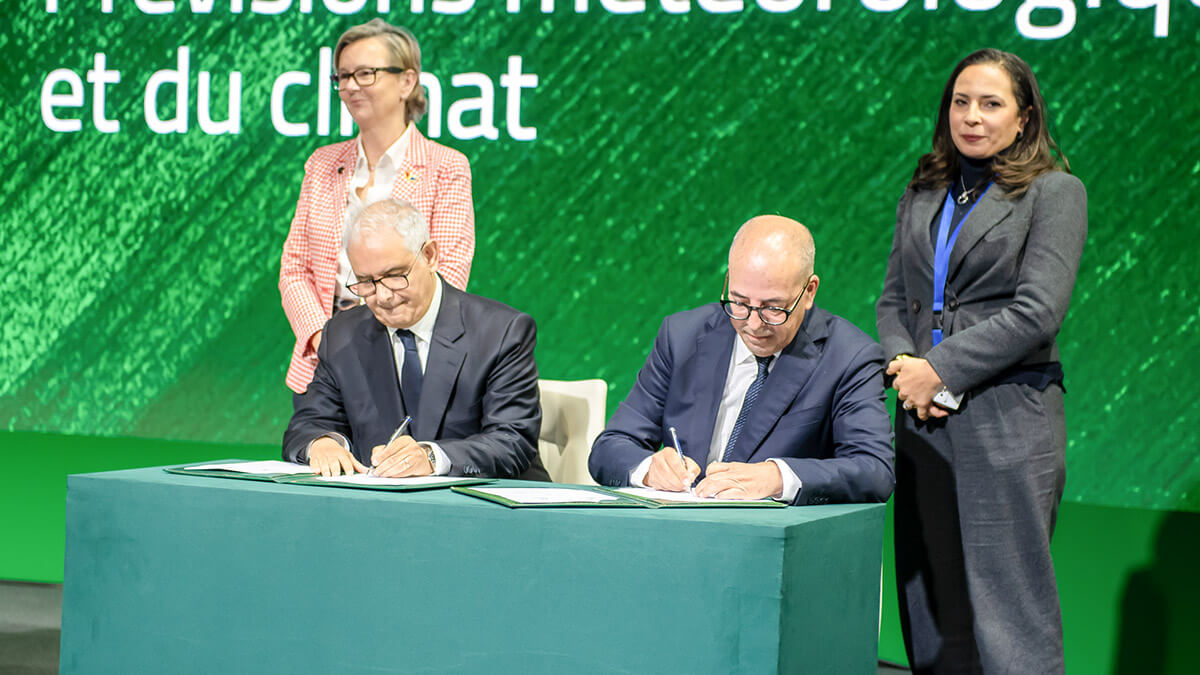
This involves the exchange of meteorological and climate data, applied research, training and the integration of this data into agricultural policies in order to support the national agricultural strategy for 2030.
The second agreement concerns the participatory management of the Sais aquifer in the Fez-Meknes region. This is an innovative contract that commits all stakeholders and provides, in particular, for the regulation of withdrawals, the complementary use of surface water from the dam and the promotion of sustainable agricultural practices.

